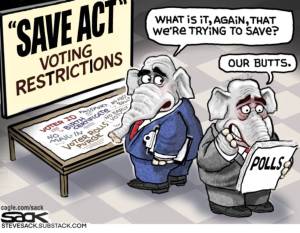Comment: Federal student loan repayments need reforms
Published 1:30 am Monday, May 29, 2023
By Claudia Sahm / Bloomberg Opinion
U.S. Secretary of Education Miguel Cardona recently confirmed that student loan repayments would begin again later in 2023, delivering what is likely to be a severe financial shock to borrowers who have not had to make payments for three years. This puts greater urgency on lawmakers to fix the flaws in the best idea for easing the transition: the Income-Driven Repayment plan.
The pause covered 43 million borrowers and $1.6 trillion in loans and came at a cost to the government of $5 billion per month; or around $200 billion in total. Although low- and moderate-income borrowers would benefit from the plan and its lower monthly payments, the problem is that most don’t have an income-based loan or even know they exist as an option. A look at late-payment rates prior to the pandemic shows what a “return to normal” could look like and how much there is to lose if the restart is managed poorly. Any difficulties in the transition will hit some groups harder, such as Black, Hispanic and Native American borrowers, first-generation college students and those who attended private for-profit schools.
So why income-based loans? Because they reduce a borrower’s likelihood of delinquency by 22 percentage points, according to Daniel Herbst, a professor at the University of Arizona most borrowers have standard 10-year fixed loans with the same payment over time regardless of the level or changes in income. Income-based plans have grown in popularity with $500 billion of debt, or about one-fifth of student loans, but more borrowers would benefit from them.
Borrowers must take several steps to enroll in one of the four income-based plans being offered by the government. Whatever option is chosen, a loan administrator determines the size of the monthly payments based on income and family size. If one’s income is low enough, there might be no payment required. Borrowers recertify annually, and monthly payments change as income and family size change. After 20 to 25 years of payments, the remaining balance is forgiven. The responsibility for ensuring that each borrower has the best plan for them lies with the Department of Education and the private loan servicers, who deal directly with borrowers. Borrowers are generally unfamiliar with the process and now would be an excellent time to run an awareness campaign by directly informing borrowers of their options.
Even so, income-driven repayment plans have weaknesses that should be addressed via policy and clarified to borrowers. Annual recertification increases the time burdens on borrowers and staff who administer the plans. Errors can — and do — occur. Other programs with a review of income, such as food stamps and Medicaid, experience high rates of administrative issues at re-certification, often due to borrowers not reporting their income. Making the certification process simpler for borrowers would encourage them to choose income-based repayment and maintain participation in the plan.
Another critical weakness is that an income-based payment plan may trade short-term relief with long-term costs. The balance due on the loan can increase, not decrease if the monthly payment is less than the interest costs. The length of repayment is at least twice for income-based loans than for standard student loans. The Biden administration proposed regulations for student loans that would, if implemented, ensure no one’s balances grew larger on income-based repayment plans, among other reforms.
Second, the administration must disentangle an income-driven repayment from broader student loan forgiveness; a controversial policy even among Democrats and one with an uncertain fate. The White House appears to have viewed student loan forgiveness as a key solution to transition smoothly back to loan payments. But if the Supreme Court strikes down loan forgiveness, which is possible, then what? The legislation proposed by House Republicans to raise the debt ceiling included a ban on student loan forgiveness. Income-based loans have an element of forgiveness after 20 or 25 years. That’s different from student loan forgiveness, and it is essential to keep them separate. Otherwise, if the two are tied together, there is a risk that both will be lost.
Third, servicers, not the federal government, are the frontline in managing student loan repayment. They are a small set of private companies that collect payments for the government. And their profit incentives are sometimes misaligned with the borrowers’ needs. SoFi Bank, one of the servicers, sued the federal government over the ongoing payment pause. They were losing revenues and profits. Servicers need incentives to help borrowers find the best repayment plan. It is doubtful servicers would change their ways; it requires government oversight and financial incentives.
“Every available tool needs to be deployed to provide borrowers with clear information and tools to enroll in Income-Derived Repayment and other programs designed to assist struggling borrowers,” said Sarah Turner, a professor at the University of Virginia. That sums it up pretty well.
Claudia Sahm is the founder of Sahm Consulting and a former Federal Reserve economist. She is the creator of the Sahm rule, a recession indicator.


